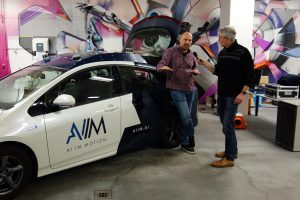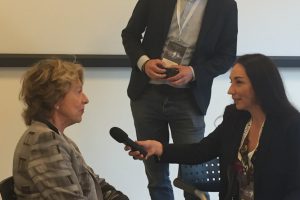Auteur: Jean-Paul Linnartz
Hourly DutchNews.nl headlines on Radio 4 Brainport
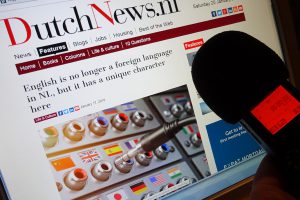
Today Dutchnews.nl and Radio 4 Brainport expanded their cooperation with the introduction of hourly headline news bulletins, which can be heard at about 30 minutes past the hour. This is the first in a number of enhancements Radio 4 Brainport has planned to provide its listeners with even better coverage of international, national and local news items. A more elaborate weather report is part of the effort as well.
“We are very happy to be able to provide our listeners with up to date news from the Netherlands, supplied by the capable staff of Dutchnews.nl ” according to Jean-Paul Linnartz, Radio 4 Brainport’s program director. “This in addition to the lively discussion of the week’s news from the Netherlands every Saturday morning at 11 in the Dutchnews.nl podcast”.
Driver of Change, live from the Dutch Design Week
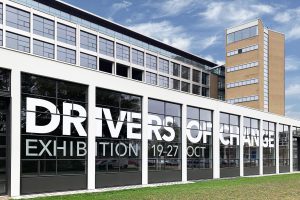
Radio 4 Brainport at work in Strijp-T building TQ6, at the Drivers of Change exhibition of the Eindhoven University of Technology,
In our Health episode, guests of our moderator prof. Jean-Paul Linnartz were prof. Carlijn Bouten and PhD candidate Bart Tiemeijer from the dept. of Biomedical Engineering, and Guid Oei, part-time professor at TU/e and gynaecologist at Maxima Medisch Centrum.
You can now also listen to the podcast of Tuesday’s program about Health at https://www.patreon.com/posts/ddw-2019-drivers-31003359
Or, in the AI episode, Jean-Paul Linnartz welcomes Maarten Steinbuch, Professor in Systems and Control, Carlo van de Weijer, head of the Strategic Area Smart Mobility, Vincent Müller, Professor Industrial Engineering & Innovation Sciences, and team Tech United, the world champions robot soccer from the Eindhoven University of Technology, to discuss Artificial Intelligence.
Also on 828 kHz AM

Our mediumwave signal on 747 was poor in the Northern part of Eindhoven. Reception is now greatly improved as Radio Nederwetten relays our program during the day. So try 747 or 828 to listen in your car. The antenna location in Nederwetten allows a much more effective radiation of the radio signal//.
Female Tech Heroes: Podcasts by Radio 4 Brainport
The aerodynamics of cycling: faster descents
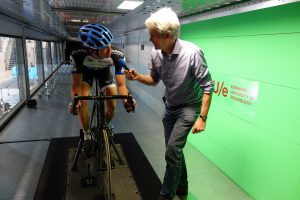
Scientific research that is being quoted over and over again? Prof. Bert Blocken’s insights on how win seconds in a cycling race, how to descent faster or on what position to take in a platoon have a profound impact of the big tours and races. Radio 4 Brainport visited this unique research facility at TU Eindhoven.
listen to our podcast Cyclists win by training in a windtunnel
Forecasting the Air Quality in every City Street?
Predicting turbulent air flows is hard. Eindhoven University of Technology has a unique wind tunnel that can experimentally simulate air flows. Although these new aerodynamic insights in cycling sport have been covered widely in the media, the insights on wind forces, on the spread of pollution, such as particulate matter (fijnstof) are also of high societal relevance. Radio 4 Brainport asked Prof. Bert Blocken to elaborate on what we can learn from wind tunnel experiments.
Podcast: Air Quality
Solar Team Builds a new Stella
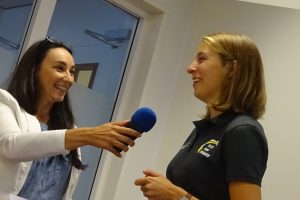
For the first team this year the Solar Team will be able to build in a new solar racing car fully under their own control.
Solar Team Eindhoven has kicked off the production process for the fourth edition in its series of solar-powered family vehicles. A notable change since the project started seven years ago is that the entire creation process will take place in Eindhoven: most of the design is based at the Eindhoven University of Technology (TU/e) and the manufacturing will be on the Brainport Industries Campus (BIC). The current team, consisting of 26 students from the TU/e working full-time on the project, will compete in the Bridgestone World Solar Challenge in Australia, on 13-20 October 2019.
“This time everything is coming together here in the Brainport region, with all of our partners. And, here at the BIC, we are working to develop as many partnerships as possible, to ensure that we make this ecosystem work”, says Evan Quadvlieg, Technical Acquisition Manager at Solar Team Eindhoven.
Listen to the interviews by Erika van Merwe on Radio 4 Brainport or visit IO.
Independent Music in the Late Evening
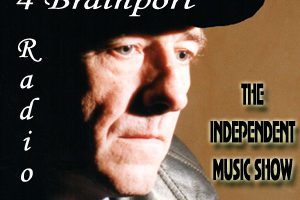
Four times a week you can listen to a full hour of music from independent artists at 11 pm. Our host is Tom Lambert from Ireland. or more independent music visit The Independent Music Show website’.
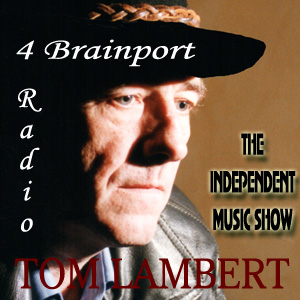
Brainport traffic during your commute
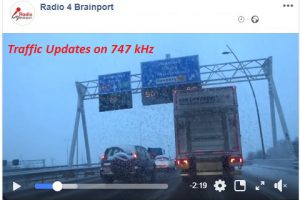
Commuting in Brainport and caught in traffic? We update you on the real-time travel times and delays in and around Eindhoven. Twice every hour, a full update.
We are planning to expand our information services, but as a volunteer station, we love to get in touch with you if you like to help us in getting it up and running.
IO Peak Awards, hear it all on Radio 4 Brainport
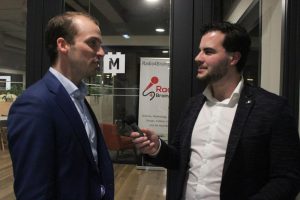
During the first three editions, he was the chairman of the jury, this year Staf Depla is the big winner of the High Tech Piek Event that Innovation Origins organizes every year around Christmas. Depla, alderman for Economic Affairs in Eindhoven until last Spring, received the award for his efforts around the Brainport Action Agenda, which has helped the Brainport Eindhoven region move forward in the Netherlands as well as abroad. Previous Peaks have been awarded before to Guus Frericks (2015), Rob van Gijzel (2016) and Maarten Steinbuch (2017).
The STARs of 2018, awarded for performance in the past year, are John Blankendael, BIC, Carlijn Bouten, TU/e Professor of Biomedical Technology, Saartje Janssen, director Summa, and Jean-Paul van Oijen, Twice
The KNALLERs 2018, thus people of whom a lot is expected in 2019 are Lex Hoefsloot, Lightyear, Jalila Essaidi, BioArt Laboratories Max Aerts, Dutch Energy Solutions, Ineke Hurkmans, IamNL.
You will hear the all on Radio 4 Brainport
